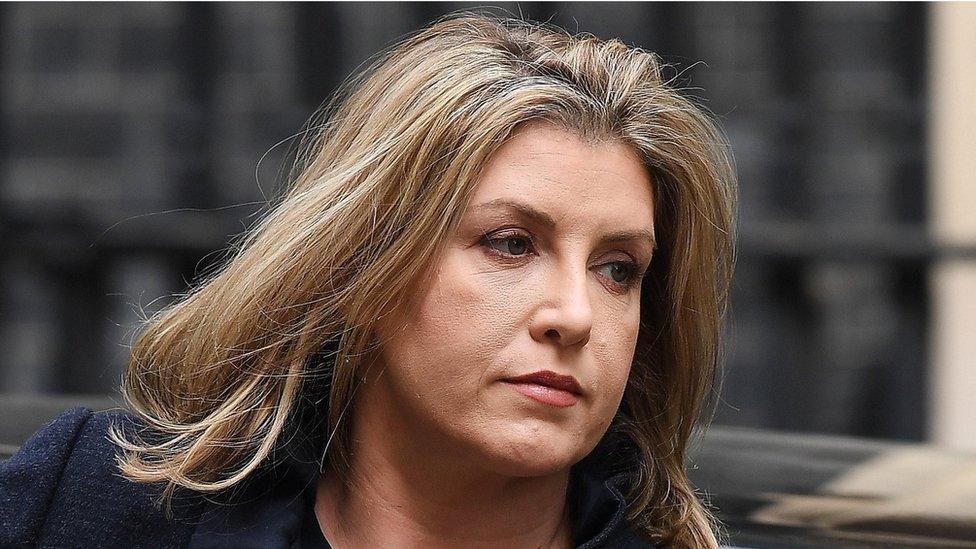Rallies held for British soldiers facing NI charges
- Published
Some of the protesters marched in a line wearing the letters spelling out "betrayed"
Rallies against the prosecution of former British soldiers who served in Northern Ireland have been held across the UK.
Hundreds of people - many of them waving banners in support of an Army veteran being prosecuted for the murder of two men on Bloody Sunday - protested outside Broadcasting House in London.
One protester said soldiers were being "persecuted" for doing their job.
Rallies were also held in Glasgow, Cardiff, Bristol and Northern Ireland.
The protests, organised by Justice for Northern Ireland Veterans, follow the announcement by Defence Secretary Penny Mordaunt earlier this week that British troops and veterans would be given stronger legal protections against prosecution - proposals that exclude alleged offences in Northern Ireland.
Six former soldiers who served in Northern Ireland during the Troubles are currently facing prosecution.
The cases relate to Daniel Hegarty; Bloody Sunday; John Pat Cunningham; Joe McCann (involving two ex-soldiers) and Aidan McAnespie. Not all the charges are murder.
In the case of Bloody Sunday, a former British soldier known as Soldier F faces prosecution for the murders of James Wray and William McKinney in Londonderry in 1972. They were shot dead at a civil rights march.
The decision to exclude soldiers who served in Northern Ireland during the Troubles angered protesters with whom the BBC spoke.
They also expressed anger at what they say is a lack of media coverage of the issue.
Hundreds of bikers also protested through Bristol
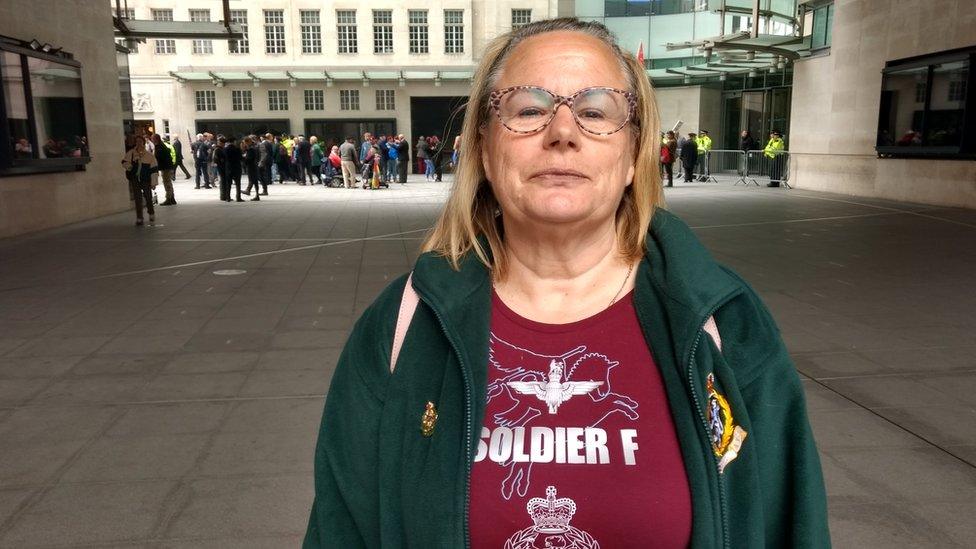
Dawn Amey said many of the British soldiers serving in Northern Ireland had been "very young" and "fighting for their lives"
Dawn Amey, whose husband and father both served in Northern Ireland and who came to the rally from Colchester in Essex, said: "Our soldiers, most of them were very young.
"They were fighting for their lives, protecting themselves, and these are the men who are now going to be suffering."
Former serviceman Wayne Stockwell, from Romford, east London, said it was "just wrong" that soldiers who served in Northern Ireland were being excluded from the new protections for soldiers against prosecution.
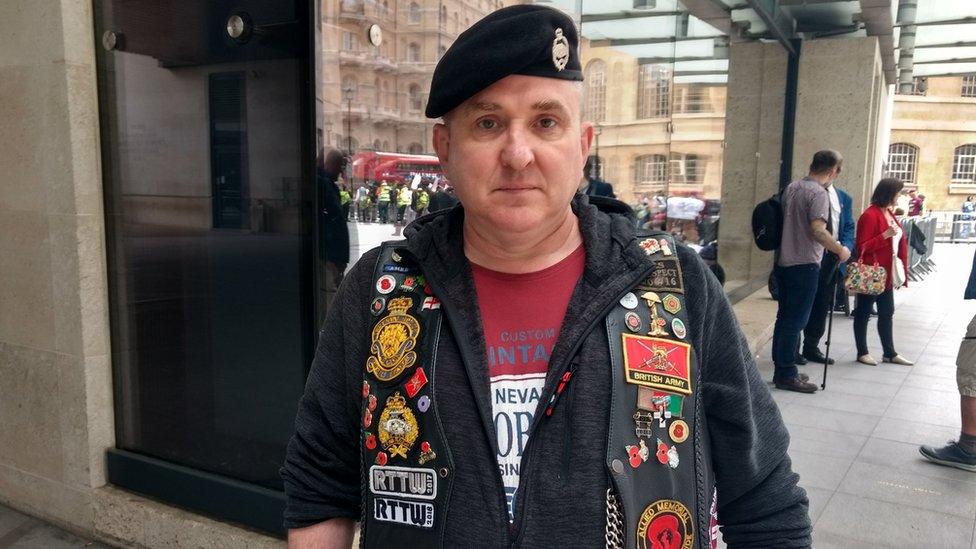
Wayne Stockwell said it was wrong that soldiers who served in Northern Ireland were not being given the new protections
He added: "Ex service-personnel didn't ask to go to Northern Ireland, they were sent there, following orders. So if anything, the government was to blame, not the individual soldier."
Jacqueline Smith, who served in the Army in Derry, said it was unfair that British soldiers were now being prosecuted when some Irish republicans were previously told they were no longer wanted by the police.
She was referring to so-called "comfort letters" from the government that were given to republicans suspected of involvement in terrorist crimes but who had never been charged.
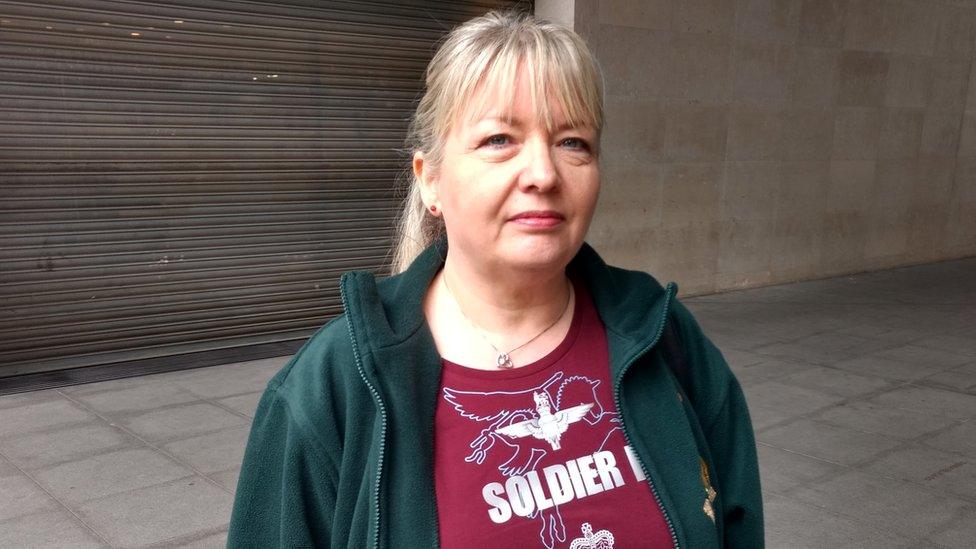
Jacqueline Smith said it was unfair that British soldiers were now being prosecuted when Irish republicans were previously given royal pardons
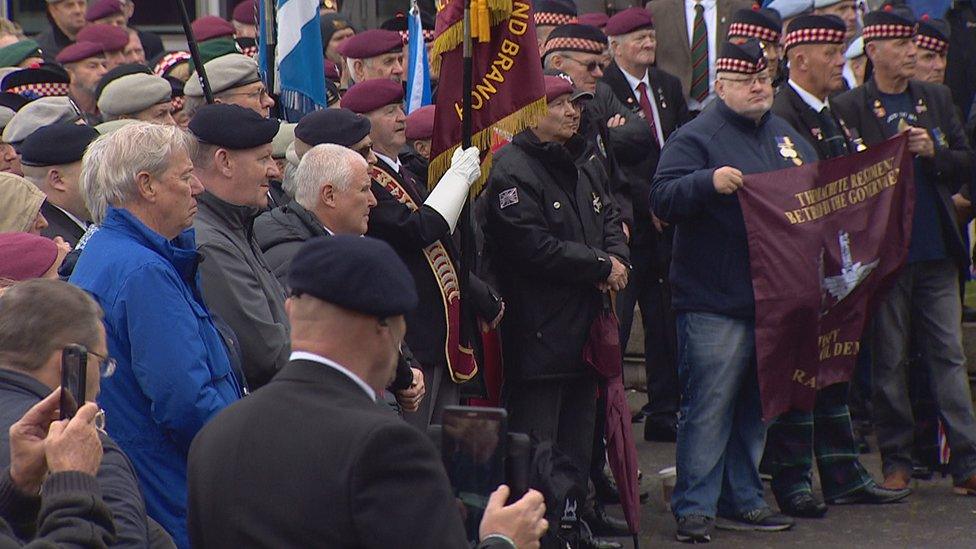
A protest was also held in Glasgow
The Public Prosecution Service in Northern Ireland has said that of 26 so-called Troubles legacy cases it has taken decisions on since 2011, 13 related to republicans, eight to loyalists, and five were connected to the Army.
The rallies on Saturday were the latest in a series of protests over the last few months, including the Million Veterans March.
- Published14 March 2019
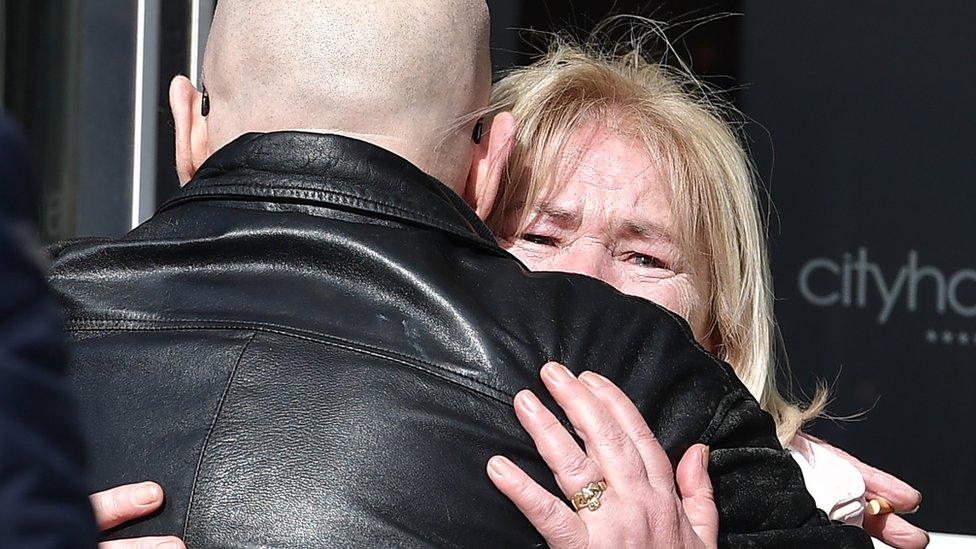
- Published15 May 2019
